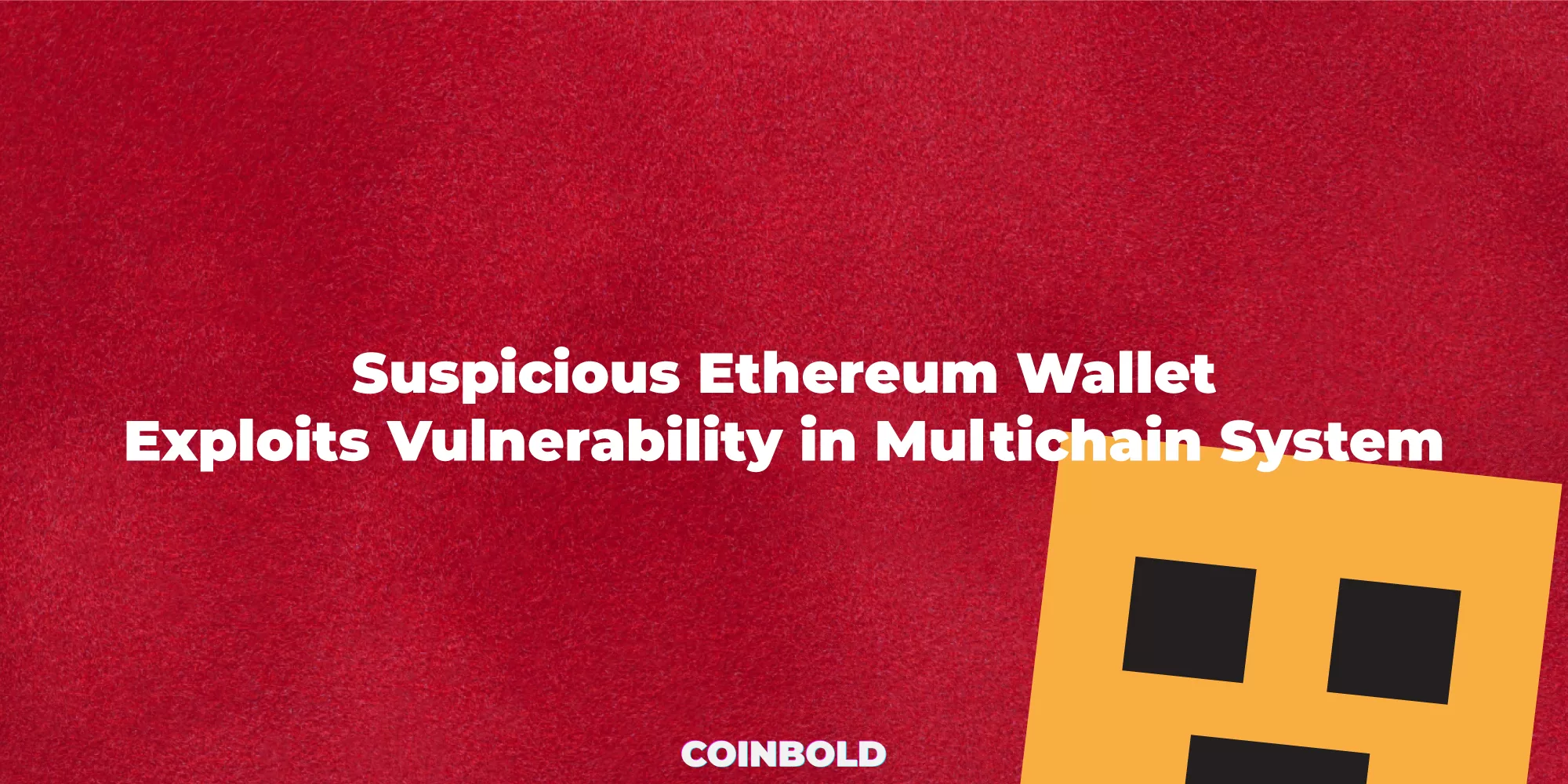In a recent incident that sent shockwaves through the decentralized finance (DeFi) community, a suspicious Ethereum wallet managed to exploit a vulnerability in the Multichain system, allowing it to receive funds from the Multichain team without their knowledge.
The implications of this exploit were significant, as the wallet wasted no time in selling off a substantial amount of tokens on the popular decentralized exchange, Uniswap. Among the tokens sold were $2.4 million worth of Chainlink’s token (LINK), $1.8 million worth of WOO Network (WOO) tokens, $800,000 worth of CRV tokens, and $870,000 worth of YFI tokens.
Price Plunge and Raised Suspicions
The sudden surge in selling activity had an immediate impact on the token prices, most notably on WOO Network tokens, which experienced an 8% sharp drop. This decline raised eyebrows within the DeFi space, prompting an investigation into the wallet’s connection to the funds from the Multichain team’s address.
Despite the team’s denial of any knowledge about the wallet, the chain of events has left the community questioning the security measures within the Multichain system. The incident also highlighted the potential repercussions of suspicious wallets operating within the DeFi ecosystem.
Investigating the Exploit
In the wake of the exploit, authorities and blockchain security experts are diligently working to uncover the intricacies of the incident. The goal is to understand how the vulnerability was exploited and identify the perpetrators behind the suspicious wallet’s actions.
The investigation aims to shed light on whether this was an isolated incident or part of a broader attack on the DeFi space. If the vulnerability is found to be systemic, it could have far-reaching implications for other DeFi projects and platforms.
Securing the DeFi Ecosystem
The incident serves as a wake-up call for the DeFi community, emphasizing the importance of bolstering security measures across platforms. As the DeFi space continues to grow and attract significant investments, the need for robust security protocols becomes more pressing.
Experts within the community are advocating for continuous audits and security assessments to identify and patch vulnerabilities proactively. Implementing multi-layered security measures can help mitigate the risks associated with potential exploits.
Investor Caution and Regulatory Response
As news of the incident spread, it triggered caution among investors and traders within the DeFi market. The episode underscored the potential for sudden price swings caused by suspicious wallet activities, making it imperative for investors to exercise due diligence.
Regulatory bodies are also closely monitoring the situation, looking for potential breaches of security and market manipulation. DeFi’s decentralized nature often poses challenges for regulatory oversight, but incidents like these could prompt further discussions on how to safeguard investors’ interests.
Moving Forward with Vigilance
The DeFi community remains resilient, recognizing the need for continuous improvement in security practices. As the investigation into the Multichain exploit unfolds, the industry’s stakeholders are taking the opportunity to collaborate and implement enhanced security measures.
While the incident has raised concerns, it has also reinforced the community’s commitment to building a more secure and trustworthy DeFi ecosystem. As DeFi continues to evolve, stakeholders are focused on fostering innovation while prioritizing user safety and protecting against potential exploits.


